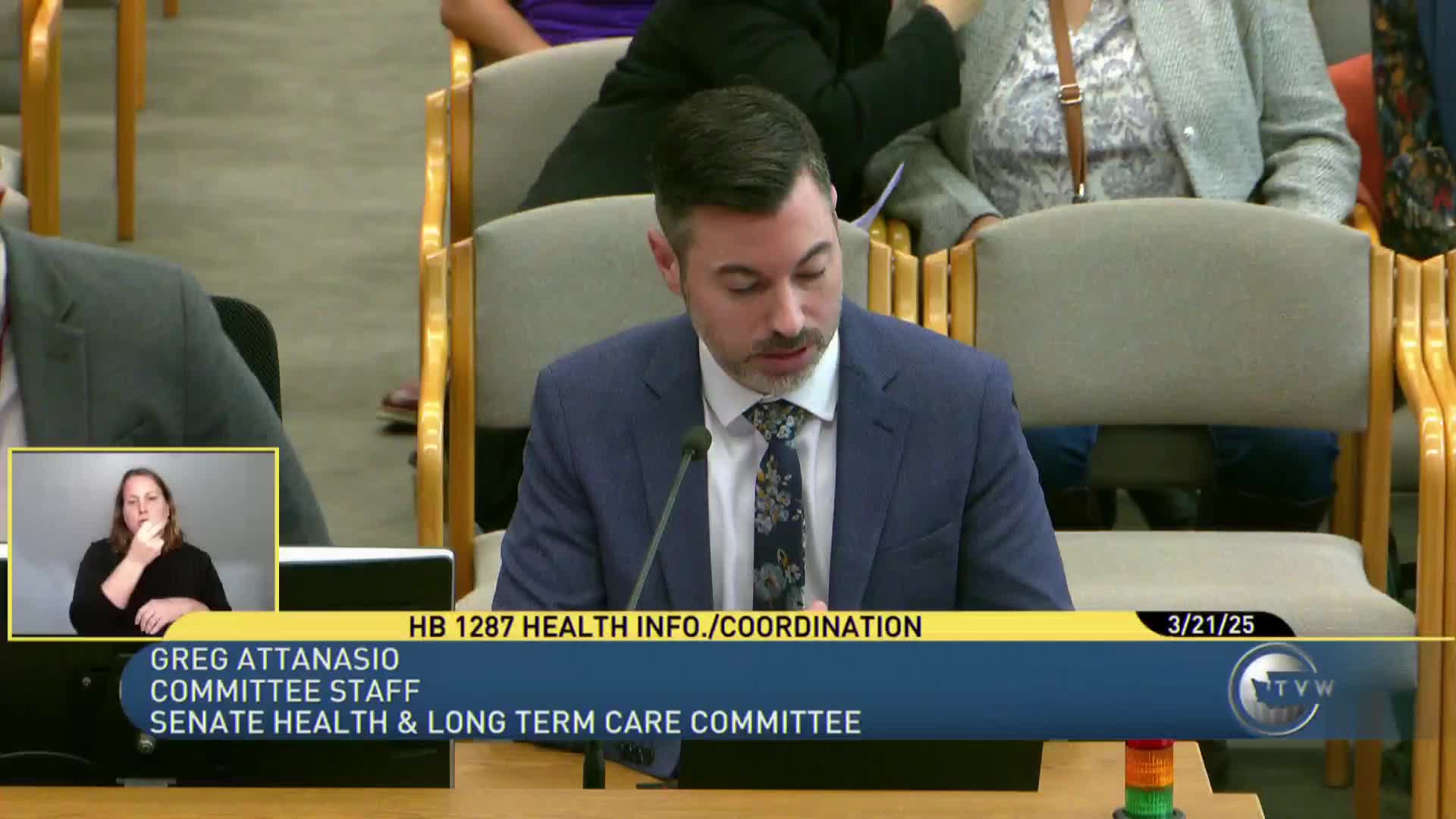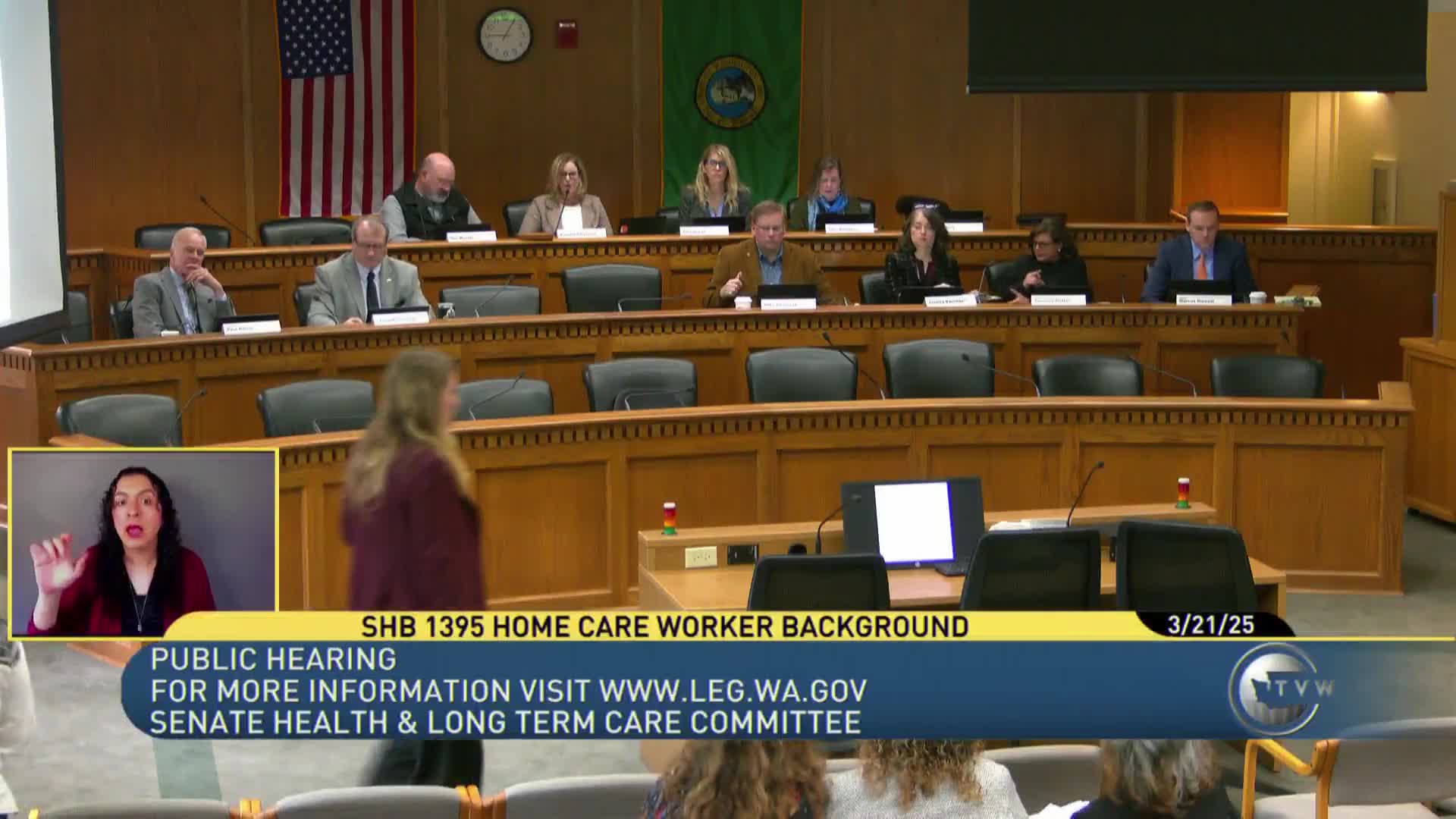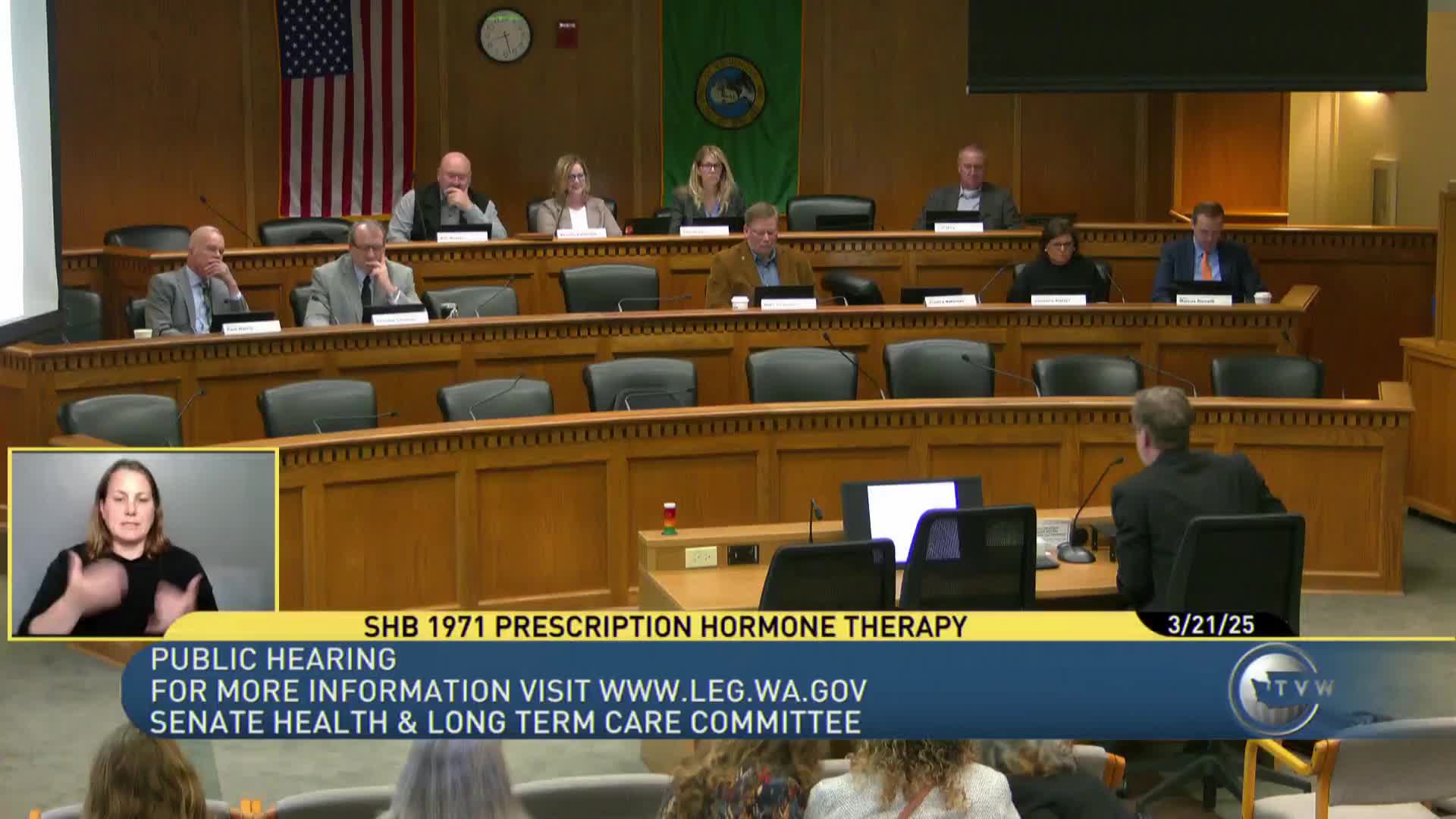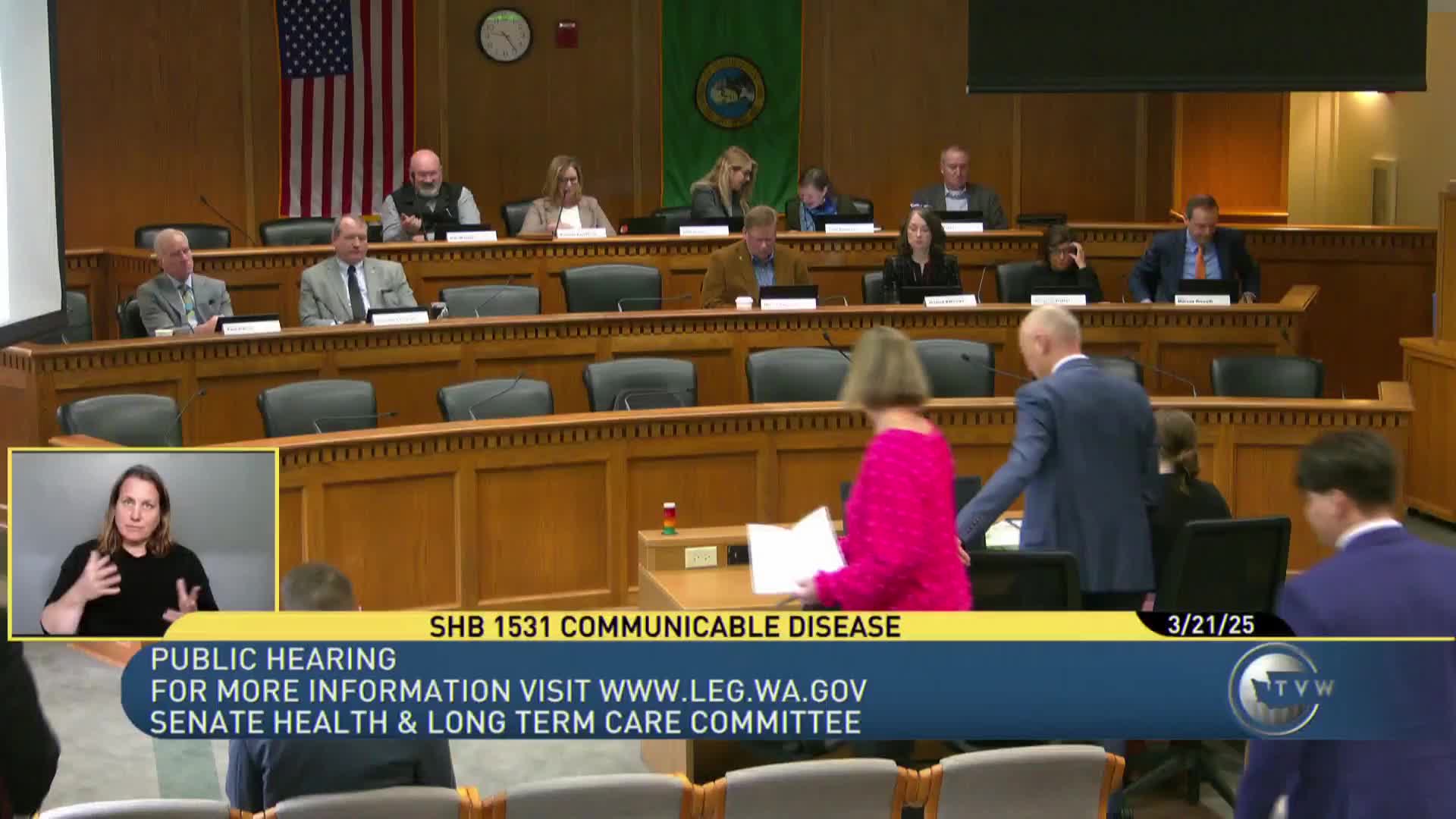Article not found
This article is no longer available. But don't worry—we've gathered other articles that discuss the same topic.

Committee hears bill to exempt elective PCIs at state-run Harborview from certificate-of-need rules

Committee advances four bills in executive session with due‑pass recommendations

Hearing on streamlining home‑care worker background checks spotlights long delays and gaps in paid care

Committee hears broad testimony supporting insurer reimbursement for 12‑month hormone refills

